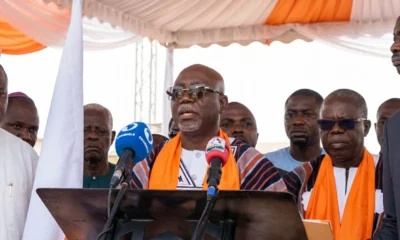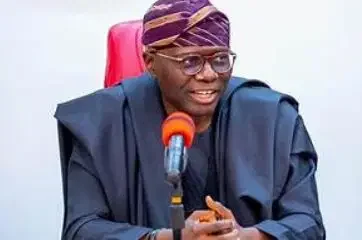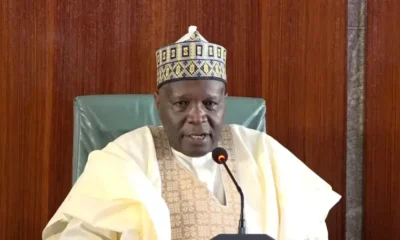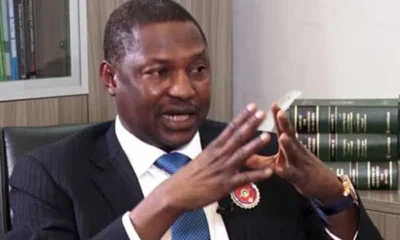News
10 Things To Know About Sheikh Dahiru Bauchi
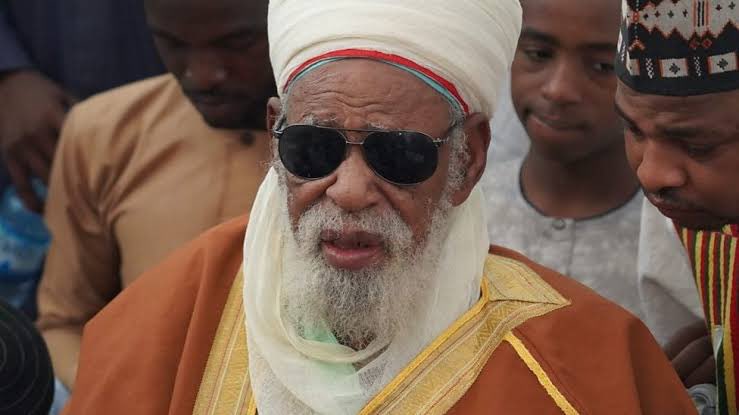
Nigeria has lost one of its most influential Islamic scholars, Sheikh Dahiru Usman Bauchi, whose death has drawn widespread tributes from religious leaders, traditional institutions, political figures and millions of followers across West Africa.
Until his passing, Sheikh Dahiru Bauchi was regarded as one of the most authoritative voices of the Tijaniyyah Sufi order, a revered Qur’anic scholar, and a spiritual guide whose teachings shaped generations.
Born in 1927, the cleric spent more than seven decades teaching, preaching, writing and providing spiritual leadership. His Ramadan tafsir sessions, sprawling Qur’anic schools, and contributions to Islamic thought made him one of the most recognisable scholars in Northern Nigeria.
BIRTH AND BACKGROUND
Sheikh Dahiru Usman Bauchi was born on 29 June 1927 (2 Muharram 1346 AH) in Nafada, then part of Bauchi Province before the creation of Gombe State. He hailed from a Fulani lineage on both his paternal and maternal sides, a heritage that reflected the deep scholarly traditions of his community.
EARLY ISLAMIC EDUCATION & MEMORIZATION OF THE QUR’AN
His Islamic education began at home under his father, Alhaji Usman Adam, a respected Qur’an reciter and scholar. Sheikh Dahiru distinguished himself early as a gifted learner. By the age of 19 or 20, he had memorised the entire Qur’an, earning the revered status of Hafiz. This foundation became the bedrock of his lifelong commitment to Qur’anic scholarship.
SPIRITUAL AND SCHOLARLY LINEAGE — LEADER OF THE TIJANIYYAH ORDER IN NIGERIA
Sheikh Dahiru was deeply rooted in the Tijaniyyah Sufi order, following in the footsteps of his father before studying under other eminent scholars, including the renowned Sheikh Ibrahim Niasse of Senegal. Through decades of teaching, he grew to become one of the leading figures of the Tijaniyyah movement in Nigeria, attracting thousands of disciples who viewed him as a spiritual guide and authority.
DEDICATION TO QUR’ANIC EXEGESIS (TAFSĪR) & TEACHING
He began delivering public Qur’anic exegesis (tafsīr) around 1948, establishing a tradition that would define his public life. For over 70 years, he provided commentary on scripture, offering moral, spiritual and social guidance grounded in the Qur’an. His tafsir sessions became a destination for scholars, students, and ordinary Muslims seeking clarity and inspiration.
INSTITUTION-BUILDING: SCHOOLS, MOSQUES AND QUR’ANIC CENTRES
Sheikh Dahiru founded numerous Qur’anic schools (tsangaya), memorisation centres, and mosques across Northern Nigeria and beyond. These institutions produced thousands of huffaz—men and women who memorised the Qur’an—helping sustain Islamic scholarship across generations. Many of these schools remain major centres of learning today.
AUTHORITY AND ROLE IN NATIONAL ISLAMIC AFFAIRS
He served as Deputy Chairman of the Fatwa Committee of the Nigerian Supreme Council for Islamic Affairs (NSCIA), the highest Islamic decision-making body in the country. This position affirmed his role as a national religious authority, often consulted on major religious, social and political matters affecting the Muslim community.
LARGE FAMILY — A LEGACY OF QUR’AN MEMORIZATION
Sheikh Dahiru was the patriarch of a large family, widely known for its strong Qur’anic tradition. Many of his children and grandchildren grew to become Hafiz, reflecting his dedication to embedding Islamic knowledge within the family structure. His home became both a spiritual centre and a living example of multigenerational scholarship.
INFLUENTIAL PREACHER WITH NATIONWIDE REACH
His teachings reached a national audience from the mid-1970s when his tafsir began airing on Bauchi Radio in 1976 and later on Radio Nigeria Kaduna around 1980. During Ramadan, his sessions drew thousands physically and reached millions across the region through radio. For many, the sound of his voice became synonymous with the holy month.
ENDURANCE, LIFELONG DEVOTION AND LONGEVITY
Sheikh Dahiru’s influence spanned the mid-20th century into the 21st, making him a rare bridge between traditional Islamic scholarship and modern religious dynamics. Despite his advanced age, he remained active in teaching and public engagement. In July 2024, followers marked his centenary celebration according to the Islamic calendar, honouring his remarkable life of devotion.
SYMBOL OF MODERATE SUFI ISLAM & SPIRITUAL GUIDANCE
He stood as one of the strongest pillars of moderate Sufi Islam, blending strict Qur’anic scholarship with the inner spiritual discipline of tariqa. His teachings emphasised peace, humility, moral conduct and spiritual balance. Beyond doctrine, he became a unifying figure admired across ethnic, regional and social divides — a “living institution” of Islamic knowledge until his death. (Daily trust)
-

 Politics23 hours ago
Politics23 hours agoPressure mounts on INEC to recognise Turaki-led PDP NWC
-

 News24 hours ago
News24 hours agoBalogun Ikareland congratulates Aiyedatiwa on one-year anniversary
-

 Politics23 hours ago
Politics23 hours agoElectoral Act: Lagos APC slams opposition over amendment agitation
-

 World News23 hours ago
World News23 hours ago‘I saw nothing, did nothing wrong’ – Bill Clinton testifies in Epstein probe
-

 News24 hours ago
News24 hours agoLagos opens coroner’s inquest into death of Chimamanda’s son
-

 News23 hours ago
News23 hours agoLagos Govt debunks ₦4.2bn office furniture, microphones budget claims
-

 News23 hours ago
News23 hours ago48 children stolen from Gombe – Gov Yahaya
-

 News23 hours ago
News23 hours agoCourt to hear final forfeiture request on 57 assets linked to Malami





